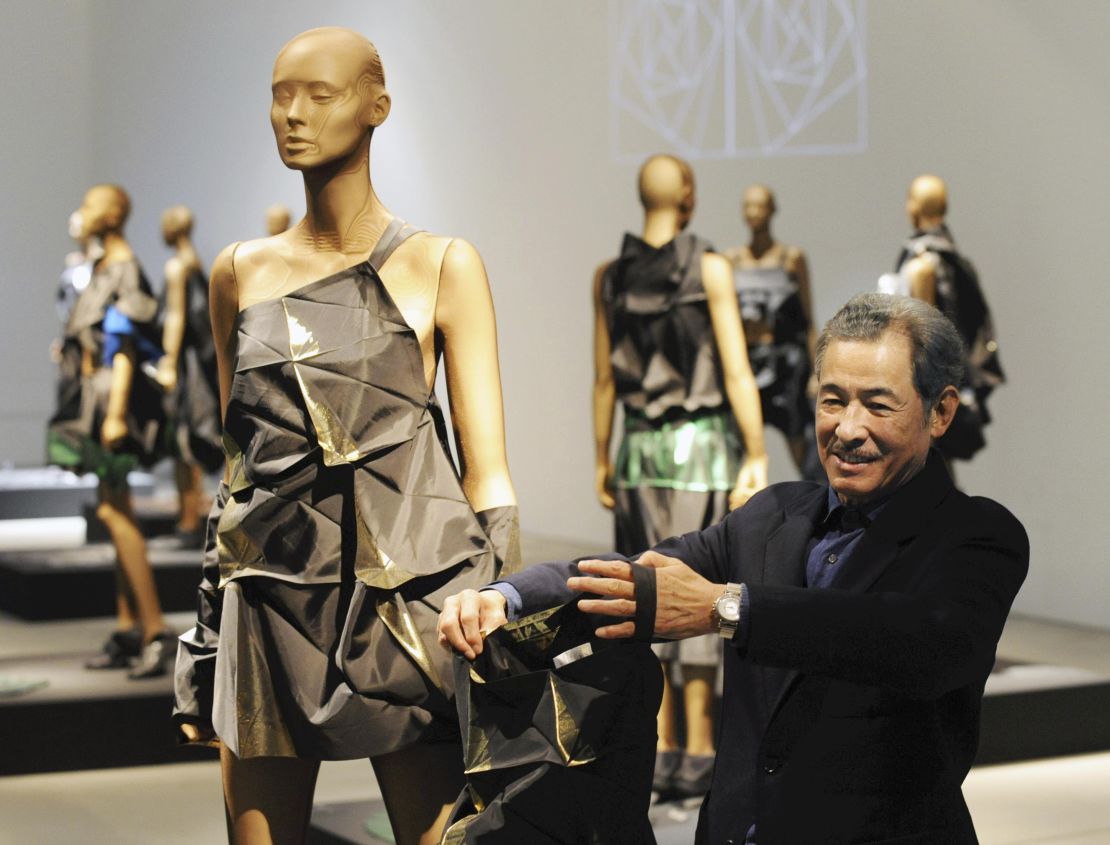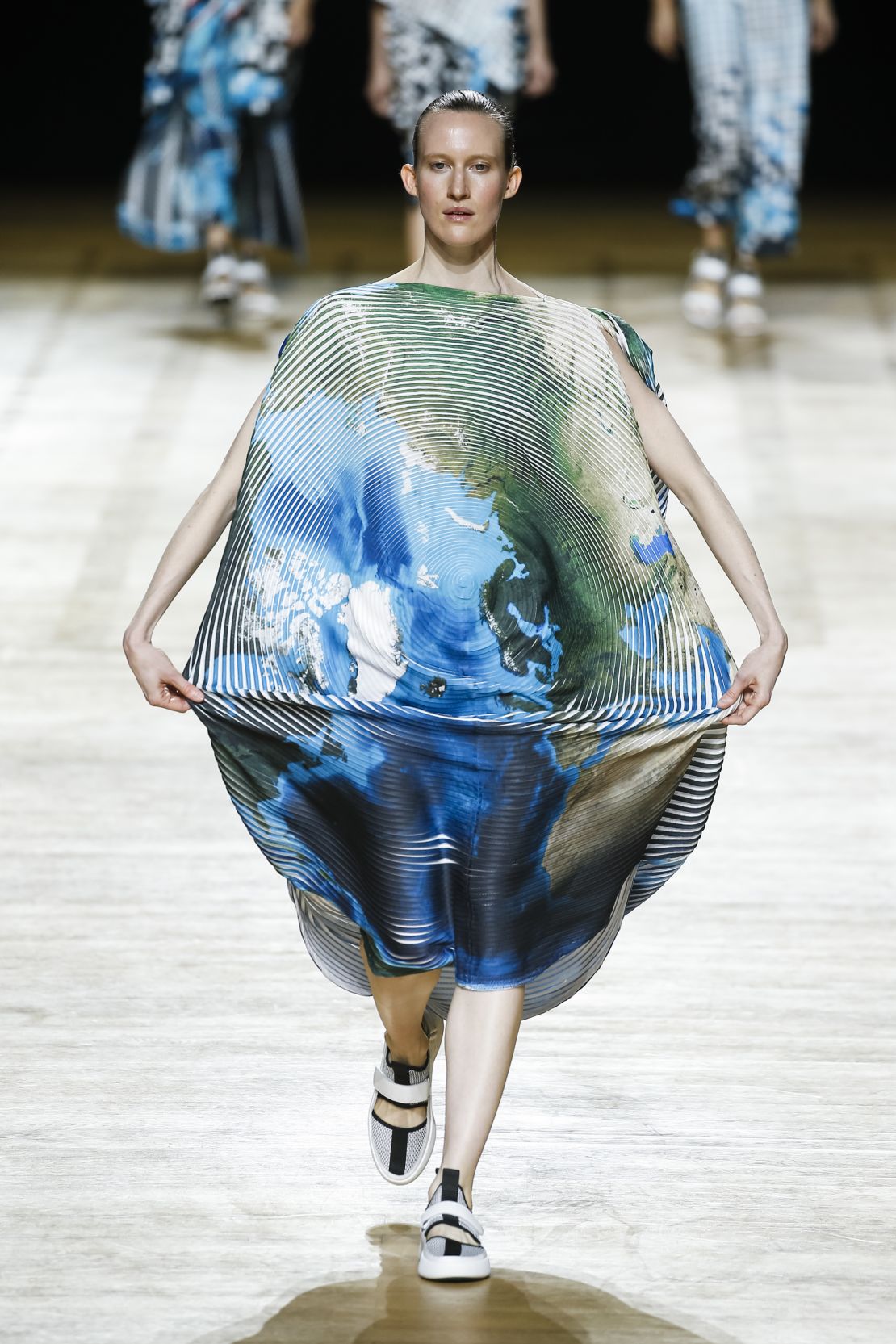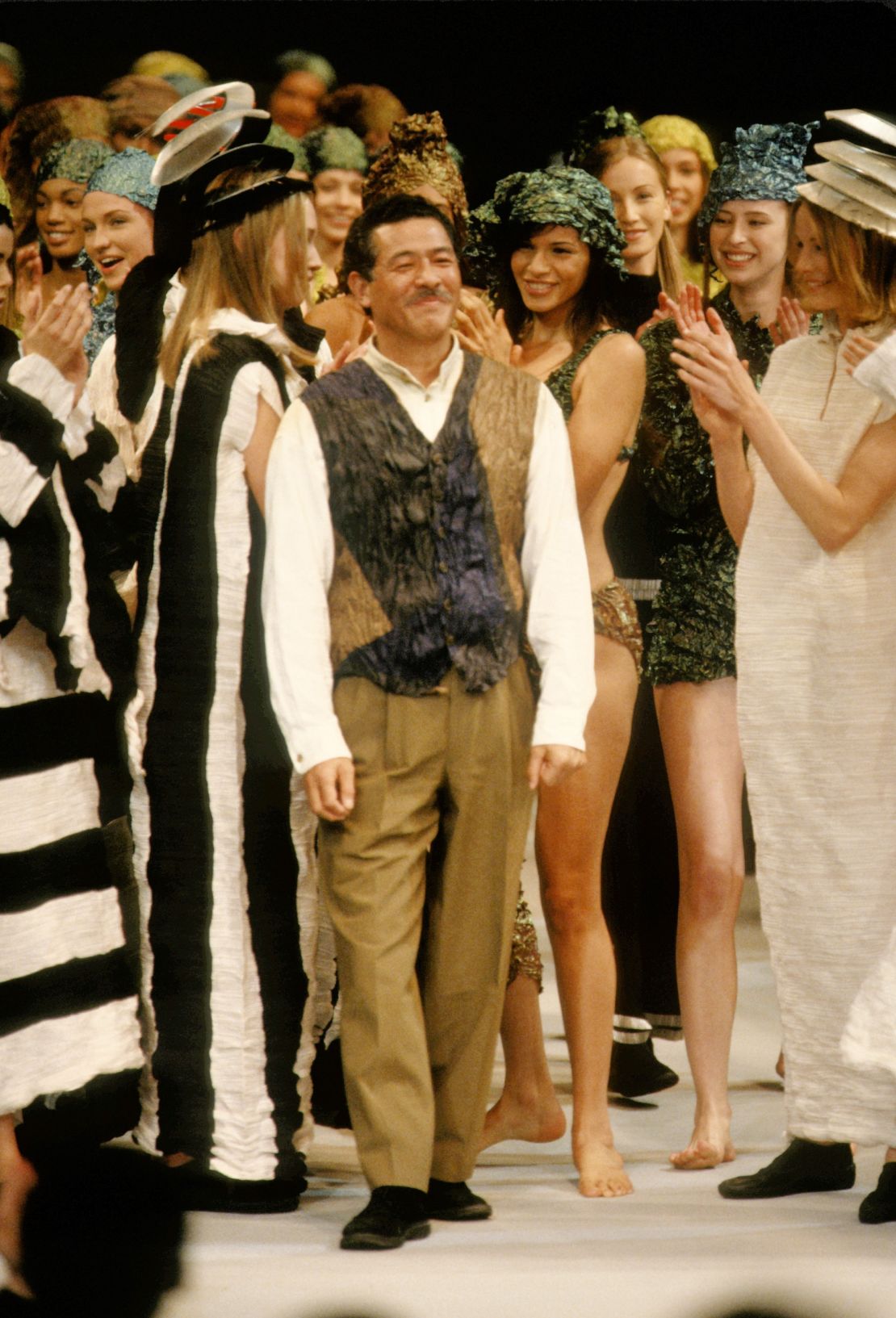Issey Miyake, the Japanese fashion designer whose timeless pleats made him an industry favorite, has died aged 84. He died of cancer on August 5, his office confirmed to CNN on Tuesday.
A funeral service has already been held with his family and close friends, his office said, adding that a memorial ceremony will not be held, in line with the designer’s wishes.
Miyake rose to international prominence in the 1980s with avant-garde designs that those who could afford his luxury pieces immediately regarded as collector’s items. Today, his designs are preserved at institutions including London’s Victoria and Albert Museum, New York’s Museum of Modern Art and the Philadelphia Museum of Art.
He also found a lifelong customer in Steve Jobs, who wore his black turtlenecks almost exclusively from the 1980s onward.

Miyake was born in the Japanese city of Hiroshima in 1938. The bomb that was dropped on the city in 1945 left him with a pronounced limp that would follow him through adulthood, and his mother died three years later from radiation exposure.
Determined not to be labeled as the designer who escaped the atomic bomb, he didn’t mention his traumatic childhood until 2009, when he wrote about the experience in an op-ed in support of nuclear disarmament, published in the New York Times.
Miyake studied graphic design at Tokyo’s Tama Art University before moving to Paris in 1965. There, he enrolled at the renowned tailoring and dressmaking school École de la Chambre Syndicale de la Couture Parisienne.

While in Paris, Miyake worked for Guy Laroche and Hubert de Givenchy, two of the biggest names in haute couture, before moving to New York to assist Geoffrey Beene.
In 1970, he founded his own design studio in Tokyo. His early designs skillfully blended East and West, using Japanese embroidery techniques and tattoo designs.
It was during the 1980s that he began to develop a new fabric that could expanded vertically with hundreds of tiny folds. He drew inspiration from the pleated silk Delphos gowns designed by Henriette Negrin and her husband Mariano Fortuny in the early 1900s.

Miyake took their idea a step forward, blending traditional and newly developed techniques to create permanently pleated garments that were at once avant-garde and comfortable, architectural and natural.
In the late ’90s, Miyake took a step back from day-to-day designing of collections under his namesake label, employing the help of other creative leads instead. Satoshi Kondo is the current head designer of the brand.
But he never stopped innovating. In 2007, Miyake launched his Reality Lab to explore durable and environmentally sustainable materials.
In addition to his clothing, Miyake was also known for his line of fragrances. The first, L’Eau d’Issey, was launched in 1992 and became an international bestseller.

Miyake received multiple awards for his work as a fashion designer and as an artist. In 2005, the Japan Arts Association awarded him a Praemium Imperiale for his outstanding achievement in the arts. A year later he became the first fashion designer to receive the Kyoto Prize in Arts and Philosophy for lifetime achievement.
In 2016, the French government awarded Miyake the prestigious Legion of Honor, and the National Art Center in Tokyo staged the most comprehensive exhibition of Miyake’s career.
To the very end, Miyake remained faithful to the craft of the couturier that he had learned as a young man.
“Technology is valuable in a world with diminishing resources in terms of lowering waste and facilitating mass production,” he told CNN in 2016, “but we can never lose sight of the power of the touch of human hands.”



